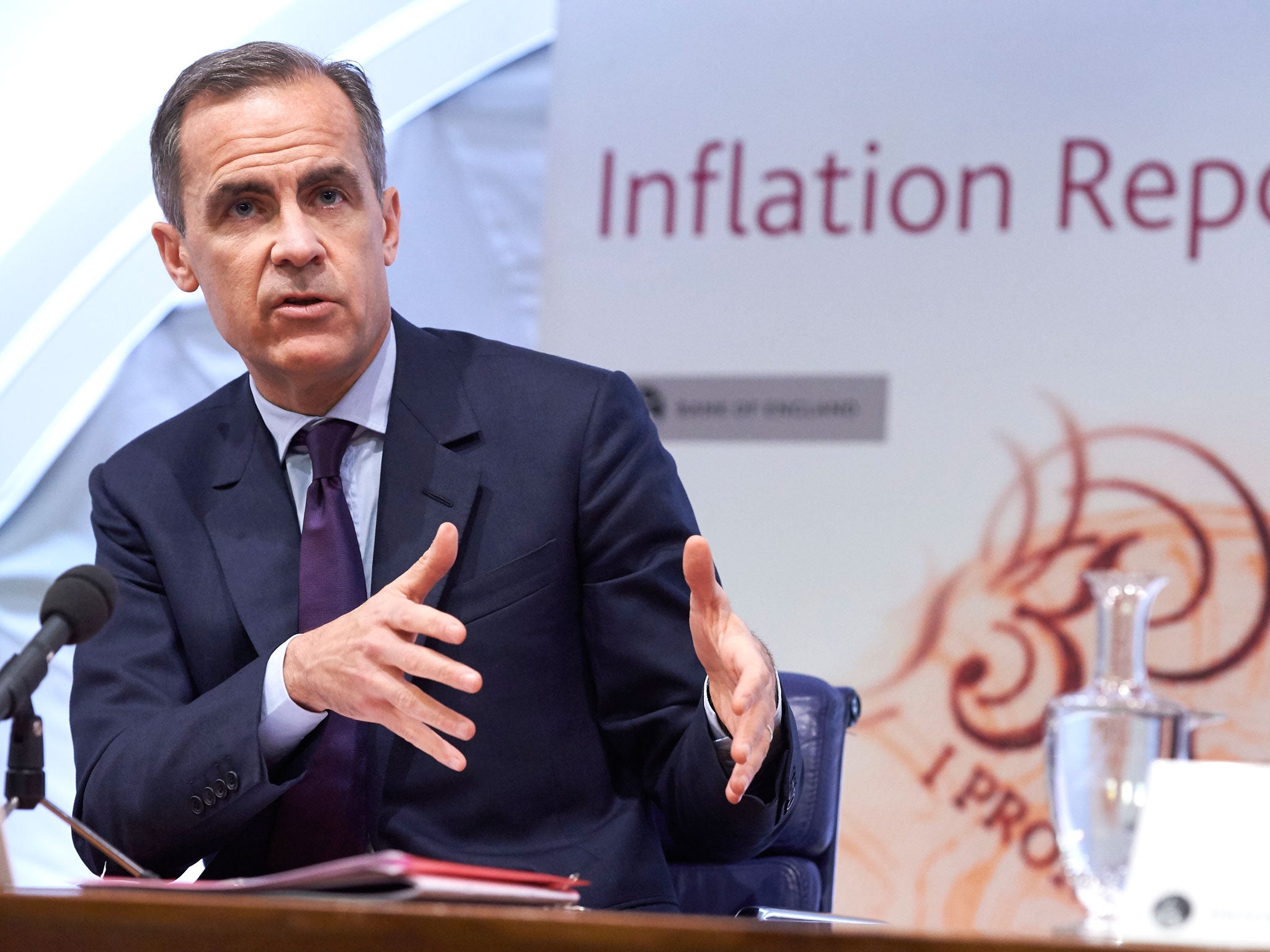Surprise inflation rise is no solace for savers
An unexpected upturn in the cost of living won’t change historically low interest rates anytime soon

The message from the currency markets couldn’t have been clearer following Tuesday’s unexpectedly high inflation figures. Within minutes of the Office for National Statistics (ONS) announcing that inflation hit 0.5 per cent in March, its highest level since December 2014, the pound had risen sharply against both the dollar and the euro. That represents a bet in the City that the UK’s interest rates, held at an all-time low of 0.5 per cent for the past seven years, will now rise sooner than the markets might previously have expected.
Sooner, however, does not mean soon. For one thing, inflation now stands well below the 2 per cent level that the Bank of England is mandated by the Government to target – until price rises move back towards that level, the Bank’s Monetary Policy Committee (MPC) will not want to take any action that might slow the economy down. March’s figures were, in any case, very mixed: inflation was more like 1 per cent in sectors such as air travel, retail and leisure, but food prices have continued to fall.
In fact, the Office for Budget Responsibility said last month that it expected interest rates to remain at 0.5 per cent or even lower – some economists continue to advocate a cut in rates to boost the economy – for the next two years. Some private sector forecasters expect the MPC to move more quickly, particularly after these latest inflation figures, but very few are predicting a rate rise before the beginning of 2017 at the earliest.
One issue clouding the outlook is June’s referendum on the UK’s continued membership of the European Union. Uncertainty about which way the vote will go, as the International Monetary Fund reported on Tuesday, is already unsettling the financial markets and acting as a brake on the economy. The National Institute of Economic and Social Research estimates UK growth was just 0.3 per cent in the first quarter of the year, which would be the lowest figure since 2012.
A vote to leave in June would prolong the uncertainty, causing further anxieties at least in the short term, even if you believe it’s the right long-term decision. That would give the MPC even greater reason to hold back on rate rises.
Against that, further rises in inflation would certainly give policymakers pause for thought – and March’s increase was higher than expected. Core inflation, the measure which strips out the most volatile elements of the inflation basket, is already running at 1.5 per cent according to the ONS. In the services sector, it has hit 3 per cent.
For these reasons, there is now an outside chance that interest rates will rise much sooner than almost anyone expects. If the UK votes to remain a member of the EU in June, the economy is likely to get a short-term boost, as uncertainty dissipates. By then, the MPC may have several months of higher inflation data to study – in which case, it may be more tempted to follow the lead of the US Federal Reserve, which became the first major central bank to move away from emergency interest rates with an increase at the end of last year.
In the meantime, low interest rates continue to bring mixed fortunes to savers and borrowers. In the savings market, it is almost impossible to find a savings account paying an interest rate of more than 1.5 per cent a year. A handful of accounts pay a little more – 2 per cent or thereabouts – but require savers to commit to fixed-rate deals that tie up their cash for between two and five years.
By contrast, mortgage borrowers are enjoying further savings, with rates actually falling slightly in recent months. HSBC has even begun offering its 1.99 per cent five-year fixed-rate mortgage once again, the cheapest ever deal of its kind. Even cheaper variable-rate deals are available, with rates close to 1 per cent on the rock-bottom mortgages. For some borrowers, it may be worth switching deals in order to take advantage of these offers.
It’s important not to get complacent – many mortgage borrowers have never known anything other than the current level of interest rates, even though it’s quite extraordinary. Still, even when interest rates do finally begin to rise, the pace of increase is likely to be slow. The Bank of England’s central forecast is for its base rate to hit 1.25 per cent towards the end of 2018; while that implies several rate rises in the intervening period, this would still be incredibly low by historical standards.
Subscribe to Independent Premium to bookmark this article
Want to bookmark your favourite articles and stories to read or reference later? Start your Independent Premium subscription today.

Join our commenting forum
Join thought-provoking conversations, follow other Independent readers and see their replies